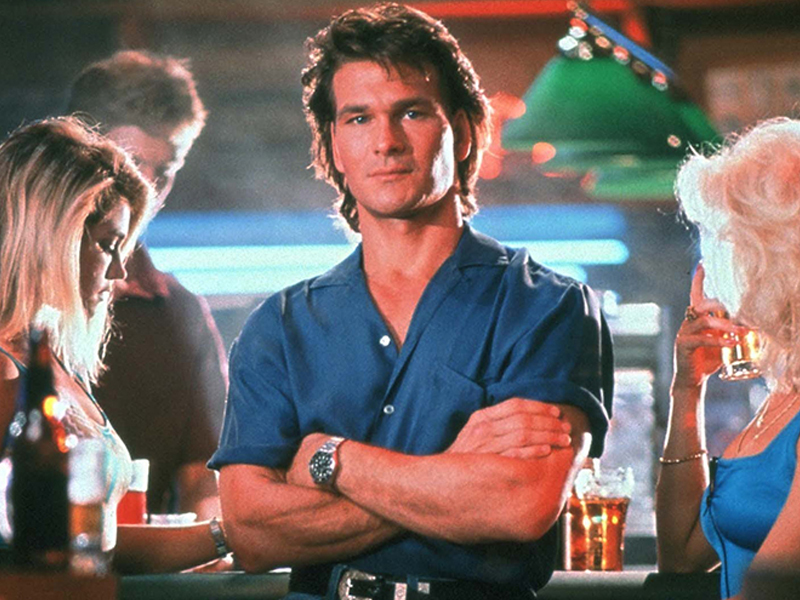The Tao of Dalton: A Social Media Handbook
Thinking Big

Skim the comment thread of any online news article. Or manage any political or high profile social media account. You’ll see first hand just how barbaric some people can be when they’re behind a mostly anonymous keyboard.
Spend too much time down that rabbit hole and it can be difficult to find your way back to sanity. We’ve all read stories about social media managers finally cracking and going rogue in response to the aggressive comments they have to field on a regular basis.
But there’s one man that social media managers can look to and learn from when navigating even the choppiest of social media waters. Or should I say, even the diviest of social media watering holes?
The name is Dalton. James Dalton.
Before Tyler Durden was spouting tough guy philosophy in basement fight clubs everywhere, we had meditative bouncer Dalton, played by the late great Patrick Swayze in Road House. Dalton was brought in to the Double Deuce and challenged to deal with some of the most unruly, unapologetic patrons imaginable, with the goal of turning it into a place that felt safe enough for the general public to enjoy.
Often times, this is also the job of a social media manager. The 140-character peacekeeper. Dalton knew the importance of peace-keeping. After all, as he pointed out, “People who really want to have a good time won’t come to a slaughterhouse. And we’ve got entirely too many troublemakers here. Too many 40-year-old adolescents…”
Sound familiar? One man or woman must come in and keep order in a community of thousands so as to not scare away the general public from visiting.
But thankfully, by following the Tao of Dalton, this doesn’t have to be daunting.
At the Double Deuce, Dalton once said, “All you have to do is follow three simple rules. One, never underestimate your opponent. Expect the unexpected. Two, take it outside. Never start anything inside the bar unless it’s absolutely necessary. And three, be nice.”
Isn’t that simple?
- Never underestimate anyone. A simple off-brand response could very easily get shared and spread, no matter how large or small a person’s network is, and become something much bigger. It’s a small world. And even smaller online.
- Take it outside. Meaning, publicly acknowledge comments or questions when appropriate, but beyond that, request a private or direct message for additional one-on-one assistance.
- Be nice. Attempt to help people. This is what we do on behalf of our clients. Just also know that some people don’t want to be helped. Thankfully, Dalton can help you with this scenario as well.
“If somebody gets in your face…I want you to be nice. Ask him to walk. Be nice. If he won’t walk, walk him. But be nice. If you can’t walk him, one of the others will help you, and you’ll both be nice. I want you to remember that it’s a job. It’s nothing personal.”
Keep your composure. Like Dalton says, it’s nothing personal. Walk them to a private place to continue the discussion. But if you’ve attempted to help and they aren’t interested in being helped, then there is nothing further that you or your group can do. So be nice. Until when? Yes, Dalton has advice in this instance as well.
“I want you to be nice, until it’s time to not be nice.”
There’s a saying in social media that you should not feed the trolls. Some people just want to use the medium as a way to spark excitement. You’ve attempted to answer their question or assist them in a complaint both publicly and privately, yet they really have no interest in any actual resolution. They just want to continue getting a reaction out of you or others, to a point that may drive people away from your community. That’s when it’s time to not be nice. Which is to say, you can ban or block them from your online establishment. Yes, this is allowed.
It’s a last resort, but it’s an effective and necessary measure sometimes. Remember, it’s not only our responsibility to ensure that people feel comfortable participating in this community, but that you and your staff never feel like you’ve lost control, either.
After all, as Dalton pointed out, “Nobody ever wins a fight.”